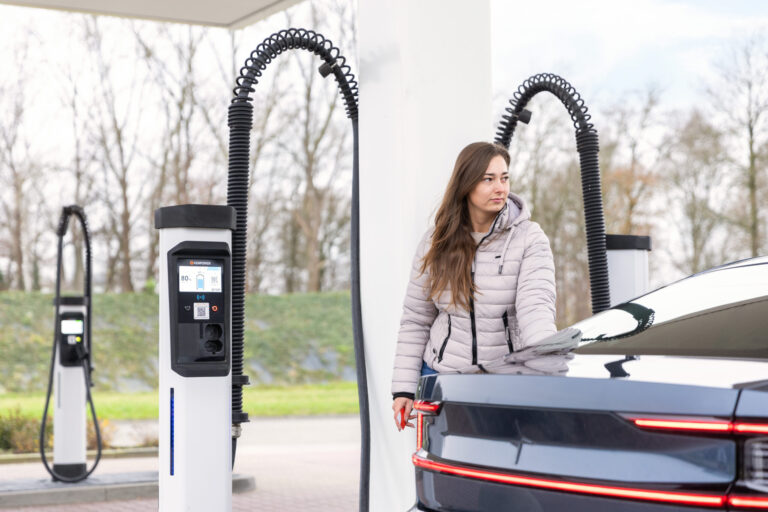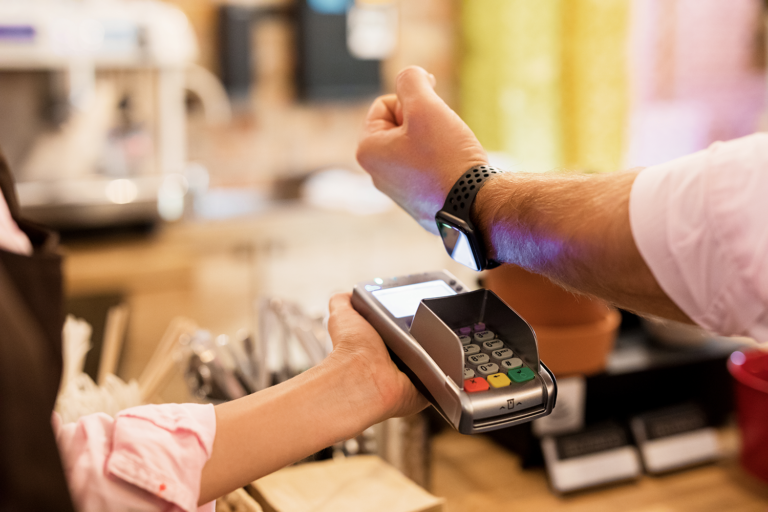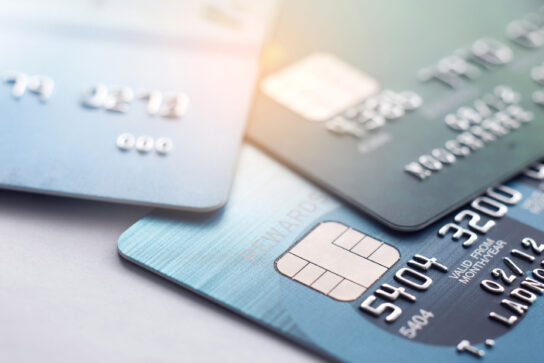How we pay for goods and services has undergone a remarkable transformation over the past century. From ration coupons during wartime to the digital wallets of today, each era has introduced unique innovations and conveniences. This article explores the evolution of payment methods, highlighting key milestones and their impact on forecourt fuel retailers in Ireland.
Ration Coupons: Wartime Necessity
During World War II, ration coupons were introduced in Ireland to control the distribution of scarce resources. These paper coupons, issued by the government, enabled individuals to purchase limited quantities of essential goods. Each family received a ration book for fuel, food and clothing. For forecourt fuel retailers, this meant managing fuel distribution under strict regulations, ensuring everyone received their fair share. The system required meticulous record-keeping and compliance with government mandates, adding a layer of complexity to daily operations.
Pre-Decimal Currency: Pounds, Shillings and Pence
Before Ireland adopted decimal currency in 1971, transactions were conducted using pounds, shillings and pence, a system dating back to Roman times (referred to as librae, solidi, denarii or £sd). This complex system, with 240 pennies to the pound, required retailers to be adept at mental arithmetic. Coins like the farthing, halfpenny, penny, threepence (or thruppence), sixpence (or tanner) and half-crown were in circulation, each with its unique value and history. The transition to decimal currency simplified transactions, making it easier for retailers and customers to handle payments, especially at busy forecourts.
Cheques: A Safer Alternative
Cheques became a popular payment method in Ireland during the 20th century, offering a safer alternative to carrying large sums of cash. Initially handwritten, they evolved into printed forms with security features to prevent fraud. For fuel retailers, cheques provided a reliable way to receive payments, especially for larger or business-related transactions. Though their use has declined, they played a key role in the evolution of secure, traceable payments.
Decimal Money: Simplifying Transactions
The introduction of decimal currency in 1971 marked a major shift in Ireland’s monetary system. With 100 pennies to the pound, transactions became more straightforward. This change was particularly beneficial for forecourt fuel retailers, who could now process payments more efficiently and accurately. Public information campaigns helped ensure a smooth transition for both businesses and consumers.
Euro Currency: A New Chapter in Irish Payments
In 2002, Ireland adopted the euro (€), replacing the Irish pound (punt). This transition marked a significant milestone in the country’s financial history, aligning Ireland with the broader European monetary system. For retailers, including forecourt operators, the euro simplified cross-border transactions and pricing, especially for international customers. The change also prompted upgrades to payment systems and signage, ensuring compatibility with the new currency.
Credit Cards: Buy Now, Pay Later
Credit cards, introduced in the mid-20th century, allowed consumers to buy now and pay later. The first universal credit card, the Diners Club card, was launched in 1950, followed by Visa and MasterCard. Irish fuel retailers benefited from the ease of processing card payments and the potential for increased sales. Credit cards also introduced the concept of revolving credit, allowing consumers to carry a balance and pay over time.
Debit Cards: Instant Access to Funds
Debit cards revolutionised how people accessed their money. Linked directly to bank accounts, they enabled instant, cashless payments. Introduced in Ireland in the late 1970s and gaining popularity through the 1990s and 2000s, debit cards offered convenience and security. For fuel retailers, they reduced the need to handle cash and enabled faster, more secure transactions, especially with the rise of electronic point-of-sale (POS) systems.

Contactless Payments: Speed and Convenience
Contactless payments brought a new level of speed and convenience. Using near-field communication (NFC), customers could simply tap their card or phone to pay. Widely adopted in Ireland, contactless payments now account for the majority of card transactions. For forecourt retailers, this meant shorter queues, faster service and improved customer satisfaction. The COVID-19 pandemic further accelerated adoption as consumers sought safer, touch-free options.

Mobile Payments: The Digital Wallet
Mobile payment systems like Apple Pay, Google Pay and PayPal have transformed the payment landscape. These digital wallets allow customers to make secure payments using their smartphones, often without transaction limits. Technologies like tokenisation ensure security by replacing sensitive data with unique identifiers. Irish fuel retailers can now cater to tech-savvy customers who prefer mobile payments, while also integrating loyalty programmes and personalised offers.
The Future of Payments
As technology evolves, so too will payment methods. Innovations such as biometric payments (using fingerprint or facial recognition) and blockchain technology (a decentralised, tamper-resistant ledger) are already being explored in Ireland. These technologies promise to enhance security, transparency and convenience. For forecourt fuel retailers, staying ahead of these trends will be key to meeting customer expectations and maintaining competitiveness.
TSG Payment Solutions
TSG Ireland is dedicated to helping retailers understand and implement solutions that simplify operations, boost profitability and attract customers to the forecourt and convenience store. Additionally, TSG assists retailers in upgrading their payment equipment with minimal fuss, ensuring the best solutions for their business.
Whether it’s indoor payment terminals for the store, outdoor payment terminals for the forecourt, or a combination of both, TSG can guide site owners through the process and provide staff training to ensure a seamless installation.
With over 30 years of experience supplying and installing retail payment solutions for fuel sites across Ireland, TSG offers an extensive portfolio of products. Whether you’re an independent business or a national multi-site network, TSG can meet your operational needs.



